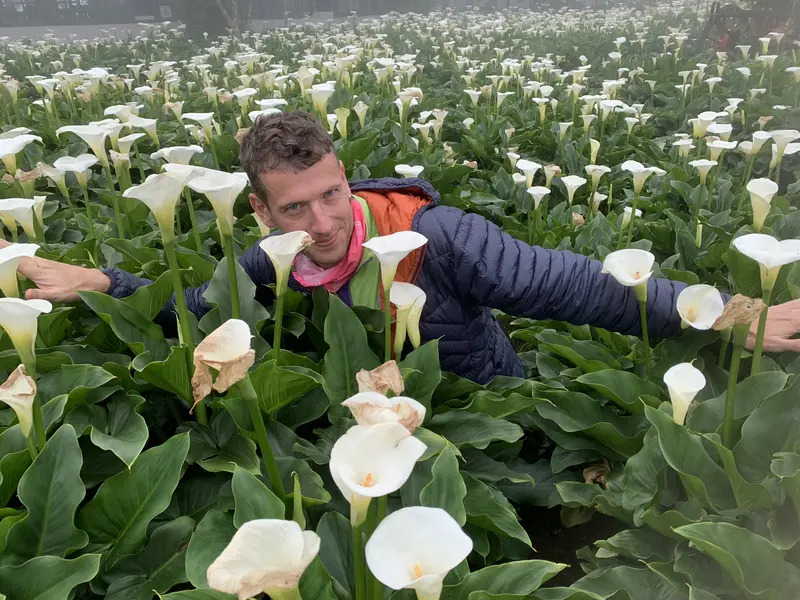Individual study contents
The aim of the study programme is the consistent transfer of theoretical, methodological and practical knowledge and skills in biosphere reserve management.
Students learn to develop sustainability strategies with participatory and cooperative approaches and acquire knowledge about ecosystems and different land use concepts. Cultural and socio-economic challenges, but also opportunities are identified and reflected.
Graduates are able to implement the UNESCO programme "Man and the Biosphere" (MAB) and sustainably improve the World Network of Biosphere Reserves (WNBR).
Modules per semester
The first semester focuses on the biosphere reserve concept and the basics of management.
Communication theories, communication techniques and communication styles, conflict resolution strategies, role plays, intercultural communication, development of learning and communication potential, environmental communication, teamwork techniques, practical exercises, basic rules of conduct in research communication.
International organisations, UNESCO, history of UNESCO, international environmental agreements and conventions, Sustainable Development Goals (SDGs), MAB programme, institutional framework and coordination mechanisms of the programme, nature conservation law of different countries, BRs as model areas, establishment and maintenance of biosphere reserves and differentiation from other protected area categories, organisations surrounding biosphere reserves, transboundary parks.
You are enabled to understand the natural functional structures and organisations relevant for biosphere reserves as complex systems. This involves understanding emergent properties and the inherently indeterminate dynamics of ecological or social systems, as well as the key attributes required for sustainable functioning. Students discuss analogies and homologies of social and ecological systems as well as the weaknesses and strengths of the social-ecological systems approach. They are able to derive requirements and limits of the management of complex systems.
Innovation & innovation promotion, basics & definitions of project management, problem analysis, problem tree / solution tree, planning methods, target planning, financial planning, time planning, DIN - process descriptions, project phases, project team & roles, controlling, monitoring, adaptive management, agile planning, Open Standards for the practice of Conservation, organisational development projects & change management, PM software, evaluation, donor landscape, application formats of different donors.
In this compulsory elective module you choose between two specialisations.
Both specialisations start with a common introduction to the basics of monitoring and research.
Presentation of theoretical foundations of quantitative and spatial research and monitoring methods, practical application examples from research, monitoring and evaluation in the context of international protected areas. Inter- and transdisciplinary methods of knowledge management are presented as well as innovative, digital methods of citizen science and communication via social media. Students learn the methods of empirical social research as well as scaled spatial analytics from the perspective of different actors against the backdrop of protected areas.
Option 1: Empirical social research
Research design (cross-sectional, longitudinal, exp. designs), qualitative data collection, qualitative sampling, quantitative data collection, quantitative sampling, qualitative data analysis, Maxqda software, additional focus on evaluation, if applicable.
Option 2: Geodata and remote sensing as instruments for spatial monitoring
Students know the practical access and the methodological significance of subject-related geodata on different scale levels and create subject-related products for the monitoring of habitat types and the communication of nature conservation results by means of analytical geostatistics and web-based cartography. The practice-oriented technical seminar teaches innovative working methods for working with geodata in protected areas using practical examples and discusses the use of current remote sensing sensors, spatial monitoring methods and the use of professional services and products for continuous landscape ecological spatial monitoring.
In the second semester, the basics are further deepened. You also choose two further compulsory elective modules to sharpen your profile.
Teaching the basics of social ecology and ethics, cultural diversity, linking social ecological aspects with economic framework conditions; forms of land use (agriculture, forestry, fisheries, horticulture, tourism, energy industry, etc.); ecosystem services, biodiversity and nature conservation; insights into economic and political theories; historical and current forms of land use in the context of the use of natural resources; effects of globalisation on land use systems; social movements, gender justice. Development of globally selected case studies on value chains from the natural resource to the consumer.
Presentation of innovative solutions and participatory decision-making processes.
Group work, joint discussion and presentation of the results.
Management tools, area management, adaptive management, participatory management, dealing with uncertainties and risks, influence of property rights and obligations, stakeholder analyses, participation and participation formats, use of rangers, volunteer management, conflict management, cooperation, business cooperation, promotion of sustainable development, ecosystem services, administrative structures and processes.
Transformation
Transformation processes, institutional change and governance processes, reflection on actor constellations in civil society, political and public space. Learning systematic, anticipatory and critical thinking.
Education for sustainable development
Education for sustainable development, actor analyses, methods, competences, problem-solving and strategy competences, indigenous knowledge.
In the second semester, you choose two of the following three elective modules.
Option 1: Ecological effectiveness of biosphere reserves
Different concepts for assessing ecological effectiveness, approaches for quantifying and evaluating ecological effectiveness, practical exercises, critical reflection on the measurability and development of innovative proposals for assessing effectiveness with regard to key attributes of biosphere reserves as social-ecological systems (e.g. innovation, capacity for change and adaptation, resilience).
Option 2: Nature tourism and cultural identity
Cultural identity (e.g. regional cuisine, regional products, regional building culture, regional history/storytelling, traditions, dialects, etc.), development of tourism, tourism as an economic factor and for regional development, strategies and methods of visitor management, segments of the nature tourism offer spectrum and offer development, conflict resolution strategies between nature conservation, cultural identity and leisure and tourism.
Option 3: Stakeholder communication in biosphere reserves
Problem analysis of land use conflicts on real case studies, getting to know and applying different tools and techniques for problem solving, development and application of planning and role plays, group moderation.
In the third semester, you conduct an independent research project in a biosphere reserve.
You are able to plan, coordinate and implement a smaller research project related to biosphere reserves.
You deal with the techniques of a research process as well as with "transfer research" and explore, among other things, the possibilities of transferring findings from research projects to other regions, methods of marketing and self-marketing.
In the last semester, you write and publish your Master's thesis.
You obtain your own research results while solving and discussing a scientific problem. You present the results of your master thesis and are able to defend the underlying assumptions, methods and robustness of the key results.
You will practice the critical reflection of your own n.n. research approach, you will present your topic to your fellow students and benefit from the exchange of knowledge and experience. You will develop your exposé including the formulation of research questions and hypotheses and the research design. Interim results are presented and discussed.
The BIOM students are a heterogeneous group of individuals. During my time in this programme, I have realised that the better the group we form together, the further I get. I am grateful that I was able to learn from and with my fellow students.

Daniel Ojeda di Vicente
Student, Biosphere Reserve Management 2021

